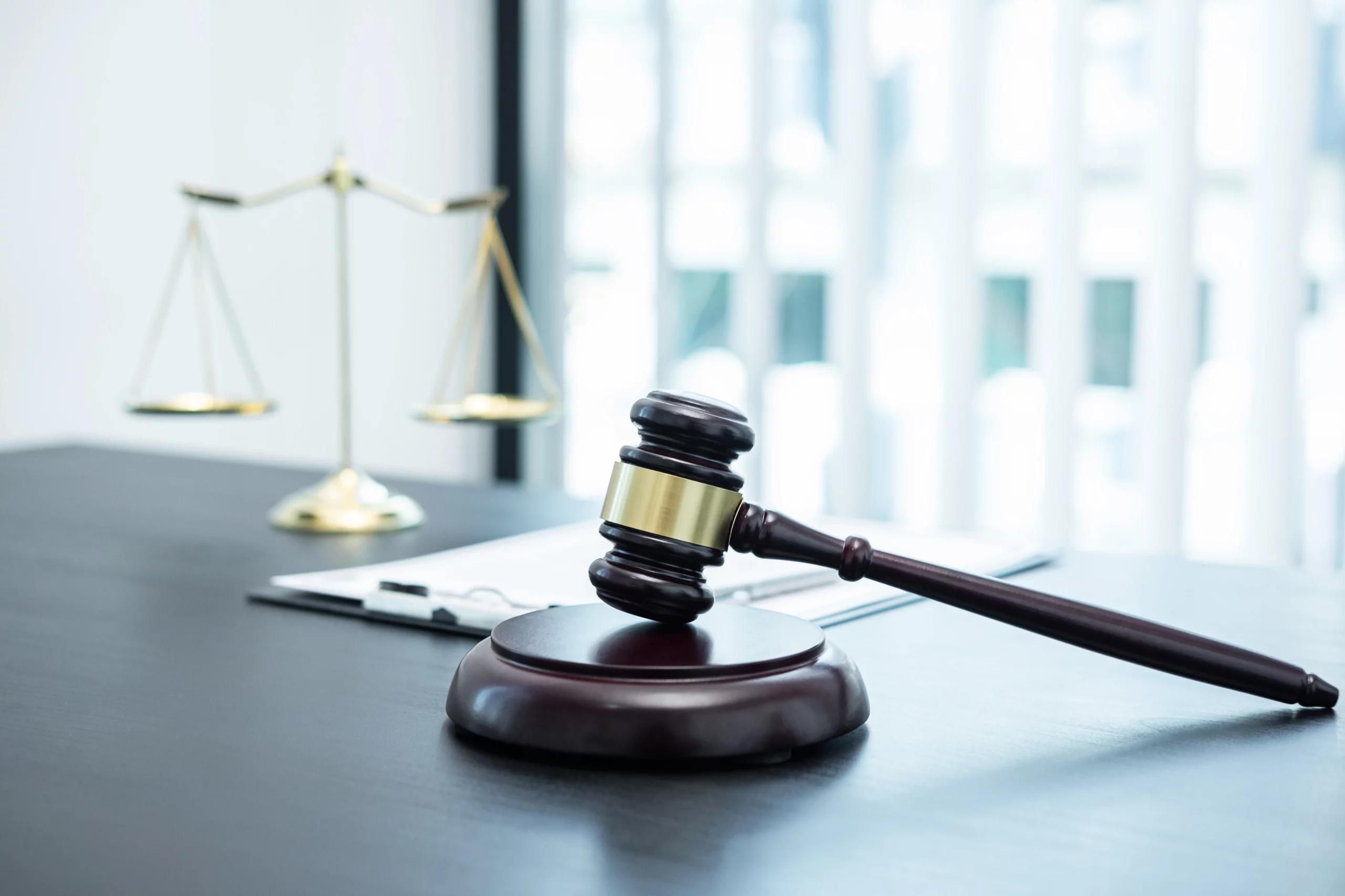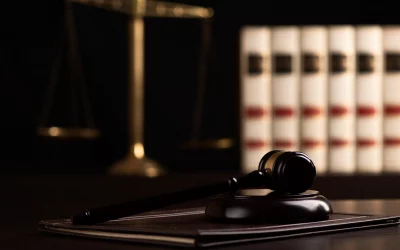Colorado Springs Injury Accident Law Firm
It’s not uncommon for someone to be hurt. Among Colorado citizens under 44, leading cause of death are the main cause of death. After heart disease and cancer, they are the third largest cause of mortality for people of all ages.
Colorado had a 13 percent higher risk of accidental injuries than the national average. Accidents involving motor vehicles, pedestrians, cyclists, and swimmers were all fairly common. Many of these mishaps are completely avoidable. Accidents, on the other hand, may have grave and life-altering ramifications.
You may have been hurt intentionally or because of someone else’s carelessness. If the accident appears easy and clear to you, you may assume that filing a lawsuit would quickly result in a verdict in your favor.
This is a common misconception. A hire a personal injury lawyer may be a question on your mind. Your injury case does not need you to engage a lawyer. However, the real issue is whether or not you should hire a lawyer.
Accidents and injuries might result in legal or medical complications that are difficult to resolve. If you find yourself in one of these situations, an attorney can help you through the legal system.
Although your case may seem straightforward, the insurance company’s ultimate purpose is to reduce the amount of money you get. It’s important to remember that insurance companies have legal and claims adjuster teams on standby to begin investigating your injury claim as soon as possible.
Even though this may be your first encounter with the legal system, it is something that they deal with regularly. To win your case and get the compensation you deserve, you need an experienced experienced personal injury lawyer on your side.
PERSONAL INJURY TYPES
These are some of the most prevalent sorts of personal injuries that may occur in any situation:
- Automobile, motorbike, and truck collisions;
- Injuries on the water;
- Accidents involving buses;
- Injuries sustained by people on foot;
- Injuries sustained by cyclists;
- Injuries to the skull and brain;
- Spinal cord injuries;
- Birth injuries, erroneous diagnosis or failure to diagnose, surgical mistakes, anesthetic errors, emergency department errors and other kinds of medical malpractice are examples of medical malpractice
- Wet or slippery surfaces or unsteady steps are common causes of slip-and-fall injuries.
- Workplace accidents, such as injuries or diseases caused by machinery or equipment at work;
- unsafe consumer goods, such as defective toys and cribs, faulty pharmaceuticals and medical gadgets; accidents caused by defective items;
- Injuries caused by animals.
A CLAIM FOR PERSONAL INJURY MAY BE YOURS.
Compensation for a personal injury may be obtained via a personal injury lawsuit in a court of law, through an insurance claim with the insurer of the at-fault party, or even through your insurer in certain cases.
If you want to file a personal injury lawsuit, you’ll often have to show that the person you’re suing was careless, which in turn caused your injuries. Most individuals grasp the concept of carelessness but may not completely comprehend the legal consequences of negligence.
To describe a circumstance in which someone failed to use necessary caution is to engage in carelessness. Jurors in civil proceedings in Colorado must follow Jury Instructions, which specifies the following legal definition:
That which a reasonably prudent person would do in the same situation is negligence. Negligence is “doing or neglecting to do something that a reasonably cautious person would do under similar circumstances if the circumstances were different.”
It’s possible to obtain damages in Colorado even if you were partly to blame for triggering the accident in which you were wounded. This is a pure comparative negligence . Compensation for an injured party will be lowered by the degree of culpability they bear.
It is up to the claimant to prove aspects like culpability and damages by a preponderance of the evidence. In other words, you must show that the facts you assert concerning your injuries and the other person’s responsibility are more likely than not true. Whether your lawsuit settles before trial, a solid case strengthens your negotiation position.
Four factors characterize negligence:
- When a person is legally obligated to behave with reasonable care, responsibility is in place.
- It is the failure to fulfill an obligation that constitutes a breach. Drivers, for example, are obligated to adhere to the speed limit. It is a violation of one’s Breaking the speed limit.
- A violation of duty has a causal link with the damage it causes.
- The victim has been harmed when harm is done to them. In most cases, this refers to bodily harm, although it may include emotional or other particular harms.
The question of carelessness isn’t always at the heart of every personal injury lawsuit. For example, workers’ compensation is subject to its own regulations. When it comes to demonstrating negligence, there is no one-size-fits-all approach. Medical malpractice cases, for example, need a different set of evidence than a dog attack or a slip and fall case.
A SETTLEMENT IS DIFFERENT THAN A TRIAL. WHY?
If you’ve been hurt in a vehicle accident, you may sue the individual who was at fault for your injuries in one of two methods. It is up to the plaintiff to decide whether or not to settle with the defendant or insurance company and, if so, whether or not to go to trial.
Settlement offers may be made before a lawsuit is filed, throughout the trial process, or even while a jury deliberates. Plaintiffs agree to sign a release after they reach an agreement with the other party.
A large number of personal injury claims are resolved out of the courtroom. According to the US Department of Justice, only four percent to five percent of personal injury claims in the United States proceed to trial.
What’s the point of settling? There is no certainty that a judge or jury will award additional money to the harmed party. Trials may be exhausting, and most individuals want to move on with their life when a trial is over.
Settlements, on the other hand, are not always feasible. Many times a defendant feels that they were not liable for the occurrence, and hence they do not have to pay any damages. A lawsuit may then be necessary for the harmed individual.
PERSONAL INJURY ATTORNEYS DO WHAT?
What a personal injury lawyer performs depends on the nature of the case and how far along the case is in the legal proceedings. It is critical to have a lawyer engaged in the early phases of a lawsuit to avoid mistakes and delays that might undermine or lessen your case’s worth.
It’s critical to be aware that every state has a deadline for filing a case, known as a ” statutes of limitations .” There are strict deadlines for submitting your insurance claim. You’ll get legal guidance from your lawyer on which laws apply to your situation.
It’s more complicated than you imagine to get the compensation you deserve after a serious injury. Even a seemingly straightforward situation might turn out to be quite complicated.
When you try to handle things on your own, you jeopardize your rights. Your lawyer’s responsibilities may include, but are not limited to:
ANALYZING COMPLAINTS
Getting a case review from a personal injury lawyer is common practice. Many lawyers work on a contingency fee if the case is accepted. As a result, they don’t bill for their services until a settlement or damages have been awarded. It may be difficult to determine who is to blame in a personal injury lawsuit.
INDICTING THE FACTS
Gathering evidence is an important part of a personal injury lawyer’s job. To back up the victim’s allegation, this evidence will be utilized. locating witnesses, photographing the scene and searching for video footage of the accident are some ways to gather evidence.
To prove the long-term effects of the plaintiff’s injuries, the lawyer will also gather medical evidence, such as medical reports and expert testimony Talking to Insurers about their policies
Negotiations with the insurance company might commence once the attorney has completed a comprehensive investigation. For a personal injury lawsuit, a skilled attorney can evaluate all of an insurance policy’s terms and determine what compensation is available.
In addition, since the lawyer will deal with all insurance company correspondence, the injured party won’t have to worry about providing a statement or ending his or her claim.
MAKE AND FILE LEGAL DOCUMENTS
Lawyers can file a lawsuit against the insurance company if they cannot agree. All of this must be completed within the allotted time frame by law.
In the complaint, the aggrieved party outlines the specifics of the litigation, including the types of damages sought. To begin a lawsuit, several fundamental regulations must be followed.
Investigating a Personal Injury Case
The plaintiff’s attorney will begin the process of gathering evidence. Discovering the facts in a personal injury case might help you better comprehend the conditions of the issue at hand.
It facilitates the exchange of evidence and testimony between the parties involved. A broad range of evidence is available for investigation in civil cases, such as those involving personal injury.
After the discovery process is complete, both parties may agree on the case’s strengths and weaknesses, which may lead to a settlement.
Discovery may be categorized into four main forms. A lawsuit’s Interrogatories interrogatories are written questions to the other side that must be answered. There are requests for production, which ask that the opposing counsel provide actual evidence for scrutiny.”
This declaration of facts is served to the opposite party and requires them to confirm or deny it. A deposition is a testimony taken outside of court to be used in the future.
TRIAL REPRESENTATIVE SERVICES
The personal injury lawyer provides legal representation in court if the matter goes to trial. To establish the facts of your case, your attorney will use all available evidence. It takes a lot of time and effort to plan a trial. Your lawyer will be there for you every step of the way. If the case isn’t resolved during the trial, these are the steps:
Opening remarks, cross-examinations, and closing arguments are just a few of the tasks in preparing a trial.
Having a personal injury lawyer on your side might help you get the compensation you deserve.
WHAT ABOUT PERSONAL INJURY COMPENSATION?
Most individuals have no idea how much money they are entitled to from a personal injury claim. Even if you use a personal injury settlement calculator, you may not get an accurate estimate.
The full extent of a person’s injuries may not be known for days or even weeks after an event has occurred. Why would you risk your legal rights by accepting any settlement offer without consulting an attorney?
Assessing your injuries’ current and future repercussions is essential to fully appreciating their significance in court. Medical expenses may not be the only thing you’ll have to deal with.
It might be difficult to determine a fair price when it comes to damages such as pain and suffering or the loss of companionship.
You need to know your unique accident case’s nuances to get the most out of it. Understanding how insurance companies operate and negotiating with an insurance company are also vital. Having a knowledgeable personal injury lawyer on your side might help you get a reasonable settlement.
Various compensation and damages are available to assist in reimbursing your losses, depending on the nature and amount of your injury.
- Medical expenditures incurred as a result of the defendant’s negligence;
- Wages not received
- Suffering and pain
- Pain and suffering; emotional anguish;
- death; loss of companionship;
- punitive damages.
- Punitive damages are permitted under extreme negligence or deliberate misbehavior in Colorado. However, there is a statutory cap on the amount.
Look for an experienced Colorado personal injury attorney if you’ve been hurt in an accident in the Sunshine State.
We urge anybody who has been seriously injured in an accident to call Warrior Injury Law immediately so we can set up a free appointment to discuss your legal options.
We’d be pleased to meet down with you and go through the specifics of your case and provide you with some legal alternatives for pursuing restitution. Warrior Injury Law knows how a personal injury may have a detrimental impact on your life, and they can help you get the compensation you deserve.
Warrior Injury Law can help you hold those responsible for your injuries accountable and seek compensation to aid with the losses you’ve incurred.
You may contact contact Warrior Injury Law online or by phone at 719-300-1100 to arrange a consultation about your case.
What do personal injury attorneys look for?
It is possible that a personal injury attorney would decline to take on every case that comes their way.
Which qualities do personal injury attorneys seek in potential clients, and how do they choose which clients to represent?
These aspects may be taken into account by a personal injury lawyer.
BEGIN WITH A COMPLIMENTARY CONSULTATION
Free consultations are required before an attorney accepts your case. The lawyer and the individual seeking additional information about a possible personal injury claim benefit greatly from a free consultation.
You and the lawyer will get a chance to see if the arrangement is a good fit for your needs during the free consultation. When you sit down for a free consultation with a lawyer, you don’t have to stick with the first one you meet.
Similarly, an attorney offering free consultation does not have to accept your case. The firm’s best interests and, in rare situations, the client may necessitate that an attorney decline to accept a case.
CLAIMS BASED ON THESE FACTS
Before an attorney accepts a personal injury case, he or she will do a thorough investigation to see whether you have a case. In certain cases, an attorney’s examination may find that you are not entitled to compensation for your injuries, even though you believe you are entitled to compensation.
The mere fact that you were hurt in an accident does not qualify you to file a personal injury lawsuit immediately. Instead, you’ll have to prove that your accident resulted from someone else’s carelessness.
Your lawyer will ask you a series of probing questions to determine whether or not you have a valid case for a personal injury lawsuit.
1. WHY DID YOU HAVE THIS ACCIDENT?
An accident victim must prove that another party was negligent in launching a personal injury claim. Let’s say you’re involved in an automobile accident.
You may be held responsible for a single-car collision. Regarding a two-car collision, your lawyer must determine who caused the accident.
For example, was texting and driving or disregarding the road rules solely to blame for the accident? You and your co-driver were equally responsible for what happened. For example, if you were at fault for the collision, you may not be able to collect damages from the other motorist.
An attorney may inquire as to whether or not you contributed to the accident or perhaps caused it as a result of your carelessness.
Let’s say that, for example, you entered an employee-only section of a shop even though visible signs warned you not to. You were not permitted to access the area. When you were there, you tripped and fell because of a hazard on the floor or shoddy repairs.
However, if you entered an area that you should not have, you may not be able to pursue a personal injury claim. A lawyer may help evaluate those elements and determine who bears liability for your accident and whether you may have grounds to move forward with a personal injury claim.
2. It’s time to talk about your injuries.
Most personal injury cases are built based on a victim’s injuries. You must demonstrate that you have experienced losses to bring a personal injury claim. Imagine for a moment if you were involved in an automobile accident.
Many vehicle accidents result in back and neck injuries, including herniated discs and whiplash. On the other hand, some unfortunate victims of vehicle accidents are fortunate enough to walk away from the incident with just minor injuries—and in some situations, even if you incur significant property loss, you may escape the incident with no injuries at all.
A personal injury lawyer may refuse to handle your case if you do not sustain injuries due to the accident. For the sake of argument, let’s say that you were not seriously hurt in a vehicle accident.
Even if the insurance company wrecks your automobile, you may not be able to file a personal injury claim since you did not suffer any injuries in the collision.
On the other hand, if you needed medical treatment due to the accident, you may be able to file a lawsuit. In the same way, imagine if you tripped and fell in a shop because the employees were too busy cleaning up a spill to notice.
Injuries weren’t too bad, and you could go about your day as normal. Your claim for personal injury damages may be nullified if such is the case.
Notes on Emotional Distress and Damage Claims after an Accident
Even a minor accident can significantly impact the victim’s emotional well-being. For those who were stranded for a lengthy period, they may suffer from sadness and anxiety, or they may suffer from post-traumatic stress disorder ( PTSD).
A personal injury claim may still be pursued if you sought medical attention for an emotional or mental condition after your accident, even if you did not suffer substantial physical damage.
Even if you have a medical diagnosis of your emotional difficulties, some attorneys may refuse to handle your case if you are in emotional distress, for whatever reason.
You may find out whether a lawyer will deal with you after an event that mainly caused emotional anguish rather than physical harm by getting a free consultation.
3. Is there any evidence you possess or that your attorney can get directly related to your accident?
It’s not always easy to show how and who was at fault for your injuries when filing a personal injury lawsuit. Consider the scenario of a retail slip-and-fall injury. Your day continued as usual once you got up, brushed yourself down, and decided not to report the mishap to the authorities.
You didn’t seek quick medical assistance since you didn’t recognize immediately that you had sustained a significant injury. A traumatic brain injury and fractured bones in your hands and arms were among the ailments you found later. However, it’s possible that you didn’t get medical help until days after the occurrence.
Is it still possible to make a personal injury claim? Certainly, because of this, gathering proof may be significantly more challenging. Video evidence from the store’s security cameras may be able to help you determine the exact date and time of your accident.
However, it may be difficult to show that your accident happened in that business, when it happened, or why it happened if you can’t recall the date or the store doesn’t have a security camera. An attorney may refuse to accept a case if it seems that there is insufficient proof to support your claim.
REWARDS IN MONEY
Before filing a claim, an attorney may consider how much money you anticipate getting in damages. Your claim’s worth is important to both you and your attorney.
Compensation for a personal injury claim may be broken down into three main categories: medical expenses, lost wages, and pain and suffering. Medical expenditures missed payments, and pain and suffering are just a few things your lawyer will consider.
Damages such as these are classified as non-economic, although you may be eligible for further cash compensation. Some lawyers limit the amount of money they will take on a case.
A portion of the money you obtain for your injuries is often how lawyers are compensated for their legal services during a personal injury lawsuit.
Consequently, if your claim’s worth is poor, the attorney may decide that he does not want to handle your case because of the lack of value. Attorneys are paid only if you are compensated, so taking on your case may not be worth the time and effort of an attorney if you have a minimal chance of recouping substantial damages.
HOW MUCH IS A LAWYER WORTH
Additionally, a qualified lawyer will look at whether they can provide services that would benefit you while you seek compensation for your injury. When pursuing a personal injury claim, an attorney may not be necessary. In other cases, a lawyer may believe he isn’t the best choice for your case if you’re looking for financial compensation.
1. TYPE OF CLAIM
Personal injury lawyers handle certain aspects of personal injury law exclusively with specialized training and experience in those fields. Examples are those specializing in automobile accident law and those concentrating only on medical malpractice.
One or both of those attorneys may feel that they cannot adequately value your claim in the event of an incident involving dog bites or slip and fall claim. It is possible that he may propose a different counsel or suggest alternative options for reimbursement.
2. In the second place, any settlement offer you’ve gotten
Is the insurance company offering you a settlement? If this is the case, you should have your lawyer review it. A modest settlement offer from the insurance company is often the first step.
Let’s say that in your car accident, you suffered just a few minor injuries. An insurance adjuster may provide a fair settlement based on your modest medical expenses. Consequently, you won’t need to hire an attorney to get your due compensation.
Often, if the insurance company makes a low-ball offer, a personal injury lawyer may boost the amount a sufferer might get for catastrophic injuries. Some attorneys may realize they cannot contribute value to a claim.
Attorneys could also find that the highest value granted by the guilty party’s insurance carrier already represents a high-value settlement offer made after serious injuries. The insurance company may just provide you with the maximum amount if you have sustained significant injuries. Even though this is uncommon, an attorney cannot add value to your case in these situations.
A smart lawyer strives to add value to your claim. If he believes he cannot, he should decline the claim at your first meeting and suggest you explore another route that gives a larger financial benefit to you.
The Crucial Steps in Selecting a Personal Injury Attorney
Choosing a personal injury lawyer after a major accident is a decision that should be made based on your circumstances.
A free consultation allows you to meet the lawyer, learn about the worth of your claim from his perspective, and make an informed choice about whether or not to engage him.
The lawyer will also have an opportunity to decide whether or not to accept your claim at the same time. As soon as possible after an accident, Contact a lawyer to see whether you have a case for a personal injury lawsuit.










